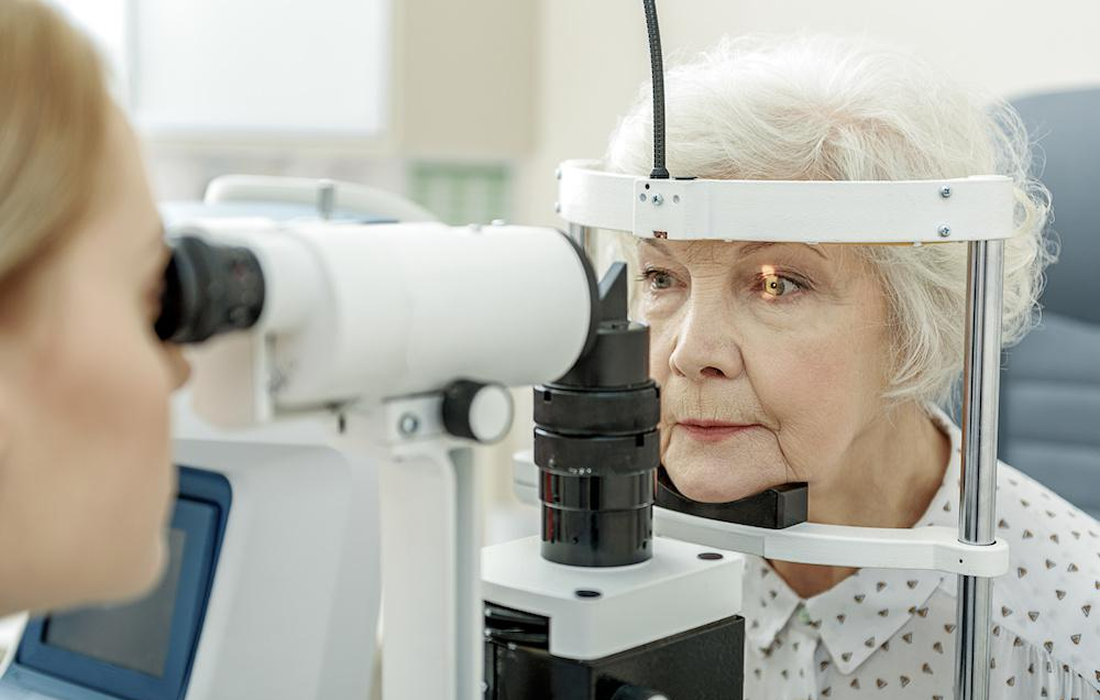Nutrition and Supplements
New Review of How Supplements May Delayed the Progression of AMD
Age-related macular degeneration (AMD or ARMD) is the most common cause of irreversible vision loss in the developed world. AMD is associated with the presence of drusen, without visual loss early in the disease. However, the disease often slowly progresses over years to retinal atrophy and central retinal degeneration with associated loss of central vision.
The early form of dry AMD is characterized by small to intermediate sized drusen, without significant vision loss. The intermediate form of dry AMD is associated with loss of retinal pigment epithelium (RPE) and the overlying retinal layers (atrophy), with loss of contrast sensitivity, loss of reading speed, and difficulty with adaptation to changing light conditions. The advanced, nonexudative form of AMD is characterized by the presence of atrophy that can be associated with severe central visual-field loss.
Greater than 90% of patients diagnosed with AMD have nonexudative (dry) AMD; nonexudative AMD is generally associated with much slower (over decades), progressive visual loss compared with exudative (wet) AMD, which is generally associated with more rapid (over months) visual loss. However, patients with the more advanced cases of dry AMD can have as profound a visual loss as those with exudative AMD.
AMD usually manifests after age 50 years. The disease is often bilateral and may be asymmetrical, and affected patients report a significant history of disease in family members who have lived to later years of their life.
The Age-Related Eye Disease Studies (AREDS and AREDS2) established that dietary supplements can slow progression of age-related macular degeneration (AMD)
New review of how supplements may delayed the progression of AMD
Emily Chew, M.D., director of the Division of Epidemiology and Clinical Application at the National Eye Institute (NEI) and her colleagues compared the beta-carotene formulation to one with 10 mg lutein and 2 mg zeaxanthin instead. Like beta-carotene, lutein and zeaxanthin are antioxidants with activity in the retina. The beta-carotene-containing formation was only given to participants who had never smoked or who had quit smoking.
At the end of the five-year AREDS2 study period, the researchers concluded that lutein and zeaxanthin did not increase risk for lung cancer, and that the new formation could reduce the risk of AMD progression by about 26%. After the completion of the five-year study period, the study participants were all offered the final AREDS2 formation that included lutein and zeaxanthin instead of beta-carotene.
In this new report, the researchers followed up with 3,883 of the original 4,203 AREDS2 participants an additional five years from the end of the AREDS2 study in 2011, collecting information on whether their AMD had progressed to late disease, and whether they had been diagnosed with lung cancer. Even though all the participants had switched to the formula containing lutein and zeaxanthin after the end of the study period, the follow up study continued to show that beta-carotene increased risk of lung cancer for people who had ever smoked by nearly double.
There was no increased risk for lung cancer in those receiving lutein/zeaxanthin. In addition, after 10 years, the group originally assigned to receive lutein/zeaxanthin had an additional 20% reduced risk of progression to late AMD compared to those originally assigned to receive beta-carotene.
As we can see, the results of this long-term epidemiologic follow-up study of the AREDS2 cohort suggest that lutein/zeaxanthin was an appropriate replacement for beta carotene in AREDS2 supplements.
SOURCE:
Emily Y. Chew, Traci E. Clemons, Elvira Agrón, Amitha Domalpally, Tiarnán D. L. Keenan, Susan Vitale, Claire Weber, Douglas C. Smith, William Christen, John Paul SanGiovanni, Federick L Ferris, Ronald P Danis, Barbara A Blodi, Alan J Ruby, Andrew Antoszyk, Michael Klein, Ivana Kim, Gary Edd Fish, Wai T Wong, David H Orth, Kourous Rezaei, Susan B Bressler, G Baker Hubbard, Michael J Elman, Suresh Chandra, Thomas Friberg, Michael Tolentino, Darmakusuma Le, Mary B Lansing, Jay B Stallman, Paul A Edwards, Carl W Baker, Michael A Novak, Ricky D Isernhagen, Todd E Schneiderman, Lawrence Halperin, Michael Lee, David Boyer, Philip Rosenfeld, (June 2 , 2022). Long-term Outcomes of Adding Lutein/Zeaxanthin and ω-3 Fatty Acids to the AREDS Supplements on Age-Related Macular Degeneration Progression. JAMA Ophthalmology, Retrieved from : https://jamanetwork.com/journals/jamaophthalmology/article-abstract/2792855
Raj K Maturi, MD; Chief Editor: Andrew A Dahl, MD, FACS (July 16, 2021). Nonexudative (Dry) Age-Related Macular Degeneration (AMD). Medscape. Retrieved from : https://emedicine.medscape.com/article/1223154-overview
IMAGE:
https://sa1s3optim.patientpop.com/assets/images/provider/photos/2448407.jpeg

